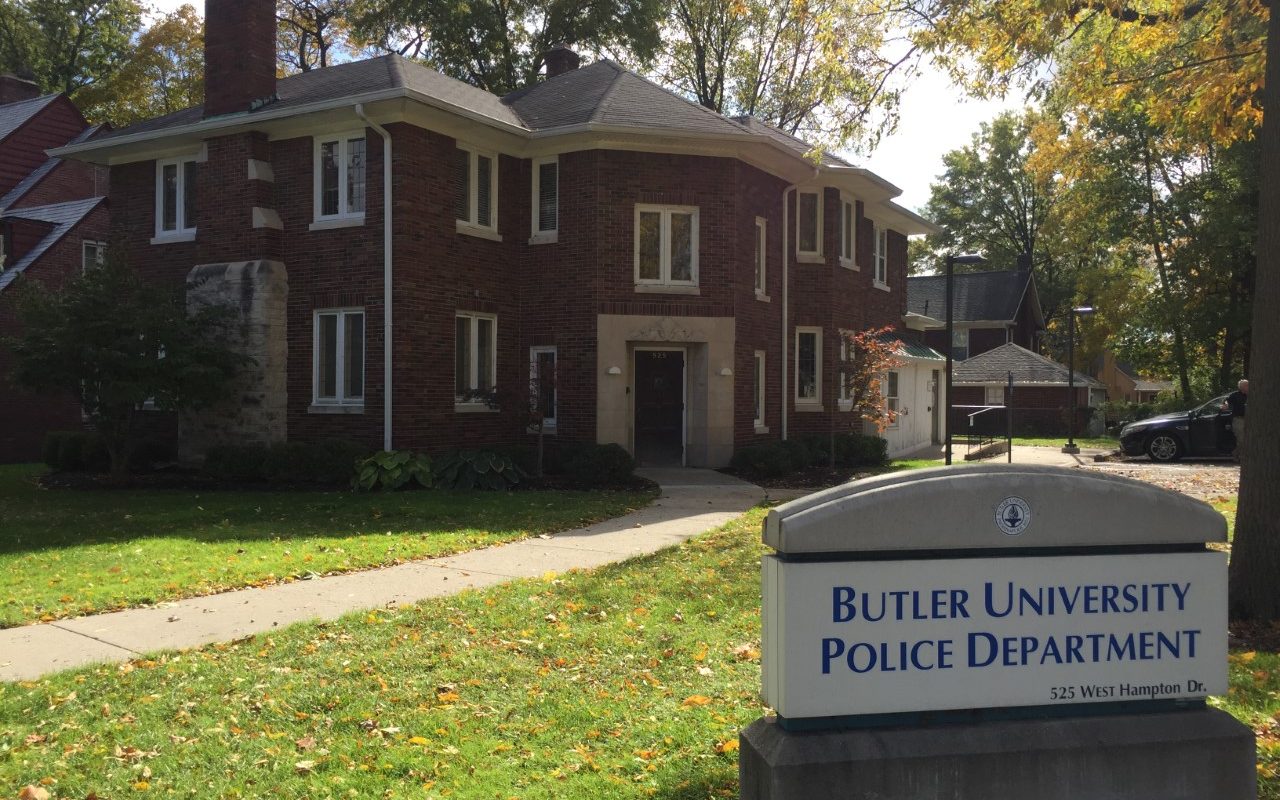ANNA SMITH | OPINION COLUMNIST | agsmith2@butler.edu
Anyone who’s ever walked home from a party knows what it’s like to fear an encounter with the Butler University Police Department. We’ve all heard the stories of people being in the wrong place at the wrong time. At the end of the weekend, it’s even common to swap outrageous ticketing anecdotes.
While the ticketing seems a bit out of hand, none of us could have predicted that the obnoxious number of drinking tickets BUPD doles out would land us in a ranking of universities with the most drinking and drug offenses. In a study recently publicized by the Department of Education, Butler ranked 24th on a Top 25 list of universities with the highest number of alcohol and drug related arrests.
This statistic is a ratio per 1,000 students who have received a drinking or drug ticket. Butler stands out in the study because we are ranked alongside massive state institutions such as Penn State, West Virginia University and University of Colorado-Boulder.
Because we are a school with just over 5,000 students, our population distributes differently into percentage calculations. One percent of 5,000 students is significantly fewer students — and consequently far fewer allotted mistakes — than 1 percent of 40,000, meaning Butler has next to no wiggle room next to gigantic state schools.
What is worrisome about this number is that with the rising number of tickets handed out — read: BUPD cracking down — it may lead Butler students to put themselves in unsafe situations to avoid being arrested.
It seems as though people are increasingly more afraid of BUPD than they are for their own safety. With alarming frequency, students are choosing to stay in areas that are unsafe — including senior house basements, frat houses, and dorm rooms — rather than risk walking home.
Many fear the repercussions of being caught, breathalyzed, and given a drinking ticket— or worse. Students also refrain from calling emergency services for friends or peers, which is incredibly dangerous and could easily result in tragedy.
Sam Fansler, a sophomore music and actuarial science major, agrees that a campus-wide fear of encounters with the police, rather than with real threats, is a dangerous mentality to have on campus.
“Especially at Butler, people are more inclined to dorm drink because they feel safer from BUPD even though it’s not safer; it’s actually more dangerous,” Fansler said.
Dorm drinking happens behind closed doors, and although it usually proves effective for avoiding authorities, it also leads to an escalated number of sexual assaults, instances of alcohol poisoning, and even alcohol-related deaths.
In a recent, uncharacteristically progressive move, Butler has attempted to provide us with the information we need to stay safe in a drinking culture, rather than just reiterate the consequences of drinking. Red Cup Culture is a program highly celebrated by students and faculty, and rightly so, as it teaches both safe drinking methods as well as promoting the non-drinking community on campus.
It seems, however, as though the progressive ideals stop there.
BUPD is one of a number of organizations on campus who advocate a strict “abstinence until 21” alcohol policy — and they enforce it harshly — but as with sex, preaching abstinence rather than educated and informed participation makes for poor decision making and more mistakes. In short, the concept of abstinence from alcohol doesn’t help college students’ safety in the slightest.
We can’t escape the inevitable: underage drinking is illegal. But it happens anyway, and the speeches designed to inspire voluntary abstinence — or instill the fear of being caught— fall upon the ears of students who are unwilling to listen, determined to make the most of their college experience.
Existing in the “Butler Bubble” makes the issue of tension with BUPD the foremost issue in our understanding of drinking culture on campus. When I spoke to a University of Virginia student about the drinking culture on their campus, however, our outlooks on university police vastly differ.
Sophomore astrophysics major Emma Klein attends the University of Virginia and has had a radically different experience with her university’s police force. She explained that, unlike at Butler, the relationship between students and police is designed purely to promote student safety, rather than to punish students for a culture that — like it or not — is a quintessential part of the collegiate experience in America.
“They could easily round up any student walking by them, and it’s pretty likely they would fail a breathalyzer, but they don’t do that,” Klein said. “They only approach you around here if you seem like you need medical attention or are causing trouble like acting out or fighting.”
Klein explained that the police force at UVA is an organization designed to protect its students rather than persecute them. She noted that, on busy days, officers patrol the streets — not to make arrests, as at Butler, but simply to make sure everyone is crossing the street safely.
“When I see the police around, I never worry that I or someone I’m with will get in any trouble,” Klein said.
At UVA, and from what I’ve heard from high school friends at different colleges, students aren’t afraid of repercussions from the police. Since they know they’ll be safe, students will make more of an effort to get somewhere safe at the end of the night.
Obviously, we must respect BUPD’s role as law enforcement, but we also need to start questioning the unsafe measures we resort to to escape punishment. Being included in the rankings of a Department of Education statistic is exactly what we need to confirm the outrageous numbers of tickets being distributed.
It is within BUPD’s rights to enforce the law, but the lengths students will go to bypass this law might be doing exactly the opposite of what a university police force is supposed to be doing: keeping students safe.



